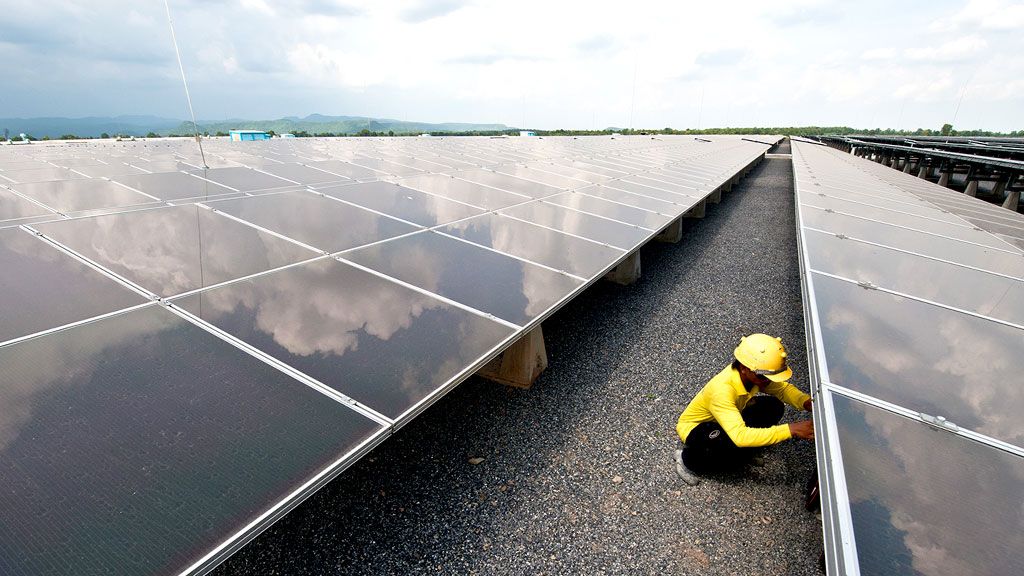Bangkok opens to energy cooperation with Rome. Southeast Asia's second-largest economy aims to break free from dependence on fossil fuels and increase renewables: what is the scenario opening up for Italian companies?
La Thailandia ha fame di energia. Ma non può continuare sulla strada dei combustibili fossili. Negli ultimi trent’anni Bangkok è stato uno dei principali motori dello sviluppo asiatico, trasformando il blocco ASEAN in una delle regioni più promettenti per l’economia di domani. Oggi la seconda economia del Sud-est asiatico ha bisogno di sostenere la propria crescita su basi solide, che dovranno partire da politiche energetiche lungimiranti e coerenti con gli obiettivi di riduzione dei gas serra previsti dall’Accordo di Parigi.
Una nazione in crescita
With a growing GDP per capita ($21.05) and a population of about 66 million, Thailand quickly transformed into an upper-middle-income economy during the 1990s. Today, the export-driven growth model is threatened by a decline in private investment (16.9 percent of GDP in 2019 vs. 40 percent in 1997) and the climate emergency that threatens Thailand's ecosystems. Dependence on fossil fuels is another problem the country must address to secure the energy sector and create opportunities on the ground.
Today, Thailand's energy mix consists mainly of oil (40 percent), natural gas (31.2 percent), and coal (12.5 percent). During 2021, imports of these resources reached 75 percent of the total used, while the Ukraine crisis is exacerbating prices on fuels. Renewables are almost limited to hydropower plants, but government programs to raise the percentage of clean sources are growing. The 2018 Alternative Energy Development Plan promises to achieve 30 percent coverage of the energy mix by 2030 through the construction of new power plants. At the center of the energy transition will be mainly wind and photovoltaics, not excluding the potential of biomass and small-scale hydropower plants. Among the strategies listed, the Thai Ministry of Energy plans to increase access to the raw materials needed to implement a smart grid from green sources and the development of technologies and know-how essential to the construction of efficient, clean and safe plants.
Opportunities for Italy
Thailand plans to achieve carbon neutrality by 2065. Bangkok is aware of the challenges imposed by the energy transition, and is opening up to partnerships with external actors to succeed in developing a resilient energy sector. Thailand participates in ASEAN programs such as the Southeast Asian Energy Transition Partnership (ETP) and the ASEAN Centre for Energy (ACE). The country is now open to new opportunities for investment and cooperation under the strategic partnership with the European Union, which devotes considerable space to the topic of sustainable development and green technologies.
In this context there is also room for Italian companies interested in developing new projects with Thai partners. As speeches at the last Italy-ASEAN High-Level Dialogue organized by The European House-Ambrosetti pointed out, the energy sector represents fertile ground for birthing new collaborations and contributing to Thailand's energy transition. In recent years, the bilateral dialogue between Rome and Bangkok has intensified through a shared agenda of mutual economic cooperation and opportunity sharing in the context of climate challenges and sustainable development. Both sides aspire, as Ambassador Lorenzo Galanti pointed out, to the resumption of negotiations to facilitate technology transfer and exchange of knowledge and expertise in the energy sector.
The second meeting of the Italy-ASEAN Development Partnership was also held on June 10 with the aim of defining areas of practical cooperation from 2022 to 2026. These included the topic of clean energy, with Rome promising to support the energy development of ASEAN countries by providing know-how and safe technologies with low environmental impact. Today, trade exchange between Italy and Thailand has returned to growth after the pandemic pause. Italian exports in the first half of 2020 grew by 18 percent, while imports from Thailand reached +26 percent year-on-year. New plans for the development of technological cooperation, therefore, offer further prospects for growth in the relationship between the two countries.






